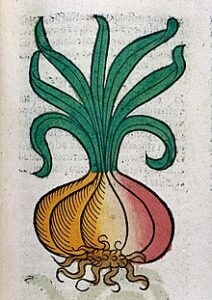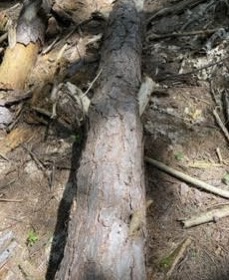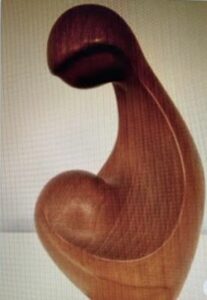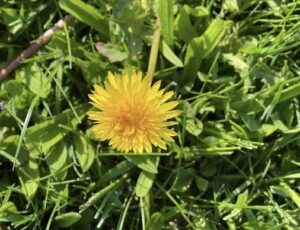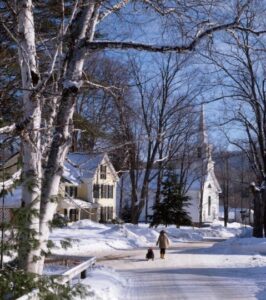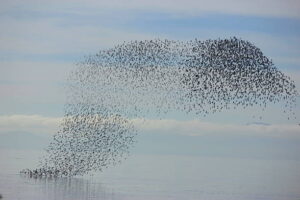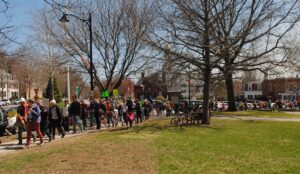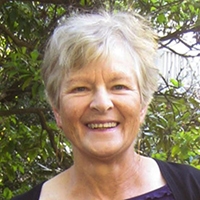 Welcome to The Polly Papers, my reflections and meditations on the surprising, puzzling and unusual glimpses of the Spirit of God in the world. This audacious attempt to capture, in words, a glimpse of an elusive yet accessible being is expressed by a phrase from a poem by Rainer Maria Rilke:
Welcome to The Polly Papers, my reflections and meditations on the surprising, puzzling and unusual glimpses of the Spirit of God in the world. This audacious attempt to capture, in words, a glimpse of an elusive yet accessible being is expressed by a phrase from a poem by Rainer Maria Rilke:
I am circling around God, around the ancient tower, and I have been circling for a thousand years, and I still don’t know if I am a falcon, or a storm, or a great song. (link to full poem)In a way, it similar to decoding our spiritual DNA. Just as the body has its basic building blocks in the genes strung along a double helix, so I believe do we have a spiritual spiral linking all the material available for growing into God-essence. I hope that some of the pieces you will find in these pages will help you unlock your own spiritual DNA. (more)
Latest Posts
Polly Jenkins ManFebruary 9, 2024She was always glad to see me. The day might be sunny, stormy, dismal or freezing, it never affected her mood, as far as I could know what her mood might be. While I have too often sensed others scrutinizing my looks and criticizing my opinions: “Did she comb her hair? Where did she come up with that idea?,” she never made me feel inadequate, unloved or lacking. She took me exactly as I was. Always on her face was pure joy when she saw me. A bad day would turn on her greeting me and I felt completely loved once more.
She came to us when she was so very young and from day one brought cheer, energy and her fair share of mischief into our lives. Yes, she kept us on her toes and it was always worth it for the reward: a look of pure love and her soft presence.
She grew up with the children and when the youngest child entered the teen years, she always knew when he was troubled, felled by all the usual teenage angst. Some days I would come home from work to find my son lying with her, side by side on the floor. No words, just her gentle, comforting presence: “I’m here, everything will be okay.”
Later, when that young boy had graduated from high school and was at home over a mid-semester weekend break, we came downstairs in the morning and saw that she hadn’t got up. We weren’t too surprised as over the past few weeks, her hips had become much weaker. That day, though, we knew. No one had to tell us. She told us with her eyes. It was time, a time we knew would come but hoped it never would.
“Do you want to come with us?” I asked my son. He shook his head and with one last hug went back upstairs. Later, after, my husband went into the shed to get the shovel, we notified the older children who came back from work for the ceremony in our backyard. As we headed outside to the garden, my son, the small boy who had been her childhood companion, now a lean six-footer, turned to me with tears in his eyes and said “Well, Mom, I guess I’m not a kid anymore.”
Her name was Topaz. […]
Read more…
Polly Jenkins ManSeptember 19, 2023It was a misty moisty morning. Because I had missed my group walk at Walden Pond, I was feeling as cloudy as the weather. Off, then, to do some errands, ending up at Trader Joe’s. I bought squash, cereal, onions, some fish and a few other things. While these were unloaded at the checkout counter, I searched in my messy pocketbook for my wallet. And kept searching. It wasn’t there. “No worries” the cashier told me. “We can hold them here for a few hours.” Since I wasn’t likely to return that day, given the weather and the distance, I asked, her, apologetically, if the items could simply be returned, when a voice behind me said, “I’ll get them.” A young mother, little girl in tow, came over and presented her credit card.
She had heard the exchange at my checkout counter. True to my automatic reflex, I was about to decline her offer: “Oh, no, thank you, you’re so nice but that’s okay”. However, seeing her open, happy face and beaming smile, I caught myself in time. From her expression it was pretty evident that her gesture of human kindness was important for her to offer. I accepted. We talked for a few minutes, Katherine from Chelmsford and I, and I told her that I would definitely pay it forward.
Her young daughter witnessed all of this. I bent down and told her, ‘You have a wonderful mother, but I bet you already know this.”
I pushed my grocery cart out the door with wings on my heels and a huge smile on my face. The rain was still slopping down, the sky as gray as ever, traffic on Rte. 119 as backed up as ever. Yet I was singing and smiling all the way home. I thought about her little girl, who is at that age when children soak up everything like sponges. I believe her mother’s spur of the moment gesture did not go unnoticed. This is a mother who models decent and selfless behavior to her child. It makes my heart glad to know that there are people like her in our community. We need lots of Katherines for children to grow up as good members of society, people who care for each other and the world.
What a difference a moment of kindness makes! Katherine gave me a double gift: her generosity and an opportunity for me to do the same for another. I hope that moment will come soon. […]
Read more…
Polly Jenkins ManSeptember 8, 2023I’ve been reading a lot lately about trees; about the forest community and how trees communicate with each other by means of thin filaments of fungi that spread under the forest floor. It seems that these fungal networks convey crucial information from one tree to another, including an alert that a tree is sick. Other trees then respond by sending healthy enzymes through those networks to the ailing tree. Trees appear also to send messages to each other in the air. For example, Suzanne Simard, a professor of forest ecology at the University of British Columbia, has observed how a Douglas fir that had been injured by insects sent chemical warning signals to a ponderosa pine growing nearby. The pine tree then produced defense enzymes to protect against the insect.*
Hers and other forest ecologists’ research indicate that a forest is a supportive, integrated society. Richard Powers has described it as “The Overstory”** by which I believe he means not just the forest canopy but an “uber-story”, an archetype for healthy human societies.
As is true in human society, members do eventually die. A tree will fall in the forest and whether or not it makes a sound, as the quixotic question asks, it does have impact. So that, when that tree falls and dies, the answer is “leave it there.” It may be dead, but it’s life, paradoxically, isn’t over. Indeed, its contribution to the ongoing health of the forest will be as important as when it stood straight and tall.
On my walks, I might find a newly fallen trunk that looks like this: dead wood.
Further on, I notice one that may have been lying there many years looks like this: indications of soft green moss starting to spread with bright orange fungus making a home.
A bouquet of fungi attach to this much older log, feeding off the nutrients of the decaying wood as the ground beneath starts to digest it:
Farther along, as I make my way through the woods I see what I would never have seen in my lifetime had what I’ve shown you so far been all the same log, for this fallen beauty came to earth long before I was born over eighty years ago:
Look closely at the bottom left where you’ll notice one small green leaf emerging from its moss-covered host. This former tree has now become a fully mature nurse log, so called because it feeds young lives. Soft decaying wood provides nutrients for mushrooms and other fungi, for moss and green leaves that promise future trees. There are crevices and hollows where insects feed, snakes escape the sun’s rays and small animals find cover. A nurse log which, a hundred plus years ago, was a member of its forest community, is now its own community. A community vital to the preservation of a healthy forest.
At what moment do we say that a nurse log is dead? Many human lifetimes have passed since it fell to earth. It will soon sink forever into the forest floor and disappear.
Still, its life goes on, as evidenced in this final photograph. .
We can no longer see the nurse log but she’s not done yet. Here, this stretch of four or five small green leaves march along in a straight line precisely because they are rooted in their nurse log below.
Several paragraphs ago, I wrote that the forest community could be a model for a healthy human way of life, or, as Richard Powers writes, an Overstory. Stretch that metaphor a bit and apply it to the nurse log. A tree in the community falls, but it does not die. I submit that the “death” of that tree is simply, as we have seen, a different form of life. Might it not also be a model for a healthy human way of death?
What if, when our bodies die, we become nurse logs? Very literally, that can be so with a green burial, an increasingly popular practice that allows one’s body to be buried wrapped in a shroud, usually in dedicated green cemeteries, often in forests. Like the fallen tree, our bodies will nourish the living forest for years and years. What an incalculable privilege and gift to planet earth that will be!
As tree communicates to tree, so too do we link together in human community. Our connections don’t die with us. In a way, we have been nurse logs all along; nurturing, teaching, loving, encouraging, modeling behaviors and ways of living in some fashion for those whose lives we have touched.
Although eternal life might seem to be a promise only to those who believe in the resurrection of Jesus; as the forest teaches and nurse logs show, we are beings with a presence not only when we are in our bodies. I may call it Spirit, others will say Soul, Qui/Chi or Energy; the name isn’t important. All we have to do is believe the promise seen in that final photo where tender green shoots defy death: a visible sign of an invisible truth.
Thoreau “went to the woods” to learn how to live deliberately, to learn what it had to teach. Can we not also go to the woods to learn how deliberately and lovingly it might be to die?
For further reading:
*Finding the Mother Tree by Suzanne Simard.
**The Overstory, a novel by Richard Powers
The Hidden Life of Trees, by Peter Wohlleben
Walden, by Henry David Thoreau […]
Read more…
Polly Jenkins ManJune 3, 2023
A man who went by the name of John wrote the following story about Jesus around thirty years after it took place.
Jesus had been a wedding guest at a marriage in Cana, near Lake Galilee. During the feast the host ran out of wine, not a happy circumstance for the bride’s father. Jesus called the waiters over and told them “Fill the jars with water.” So they filled them to the brim. Then he told them, “Draw some out now and take it to the headwaiter.” So they took it. And when the headwaiter tasted the water, he was flabbergasted. The water had become wine!
According to John’s account, this was Jesus’ first miracle. Since John hadn’t been around when it happened, perhaps had not yet been born, he probably heard it from a friend of a friend of someone who had been there. By the time he wrote it down, there were hundreds and hundreds of stories about the rabbi from Nazareth, so he could have heard it anywhere.
If indeed, the story is true, the wedding guests would indeed have been astounded. No wonder the story began to circulate, along with other stories about Jesus’ extra-ordinary miracles. Blind beginning to see, lame people walking, even a dead man who walked out of his tomb. In all these cases, “miracle” points to something which doesn’t occur in natural human life.
Which is why I want to share this poem today. Because there are miracles which are not extra-ordinary that occur not simply every day, but every few seconds in this our natural, earth-bound world.
First Miracle. by A.E. Stallings
Her body like a pomegranate torn
Wide open, somehow bears what must be born,
The irony where a stranger small enough / To bed down in the ox-tongue-polished trough
Erupts into the world and breaks the spell / Of the ancient, numbered hours with his yell.
Now her breasts ache and weep and soak her shirt / Whenever she hears his hunger or his hurt;
She can’t change water into wine; instead
She fashions sweet milk out of her own blood. […]
Read more…
Polly Jenkins ManMay 10, 2023It was the first day of “No Mow May” and I was supremely annoyed. In the meadow near our house a neighbor powered a loud and noxious gas-fueled ride-on lawn mower, decimating the field of sun-bright dandelions, purple violets and sweet clover, leaving flat, boring green paths in its wake.
After a cold, gray winter and a stubborn, overdue spring, perennials were finally leafing out, flowering fruit trees were wearing their best dresses and the lilac released its purple sweetness. May is the month for welcoming the pollinating species: flowers, bees and butterflies. We had seen the first bees just a few days earlier, hungry for the clover; even a hummingbird, searching for bright blossoms. Swallows, true to their inner clock, came to the fields on May 1, swooping and diving, catching newly hatched flies.
It’s a critical period, when we humans need to get out of the way and allow this precious and increasingly fragile time in the year’s lifecycle to continue. Let the wildflowers grow, leave the grass unfertilized and unmown and be soothed by a mosaic of yellows, and purples, whites and bright green. So that spring’s strong push for life will flourish.
I remember a folk song from the seventies that went like this: “God bless the grass that grows through the crack/ They roll the concrete over it to try to hold it back.” Which always, fortunately, fails. One autumn, when we were having our driveway repaved, I noticed, too late, that the area where lilies of the valley had always grown was covered with asphalt. It was a lovely spot, just by the path leading from the back steps to the garage door. I was so sad to lose it.
Spring came. And one day, looking down by the door, I saw a crack in that hard, unforgiving asphalt. Just visible, a hint of green. A few days later, a stem. Then, a bud, a flower, a lily! And more cracks. And more lilies. What amazing energy, what yearning for the sun, for growth, for life! A “force that through the green fuse drives the flower” is strong enough to blast apart concrete.*
I continue to circle around God and, like Rilke, I don’t know if I’m getting any closer. Although occasionally, happily, I do get glimpses. Like what happened the day after the flattening of the dandelion-rich field.
I looked out my window and saw this:
and this:
And so, for today, as I circle, the word that connects me to the Holy is Energy. Nature’s bold, stubborn, unrelenting Energy. Energy that will not flag nor fail; that pushes a small yellow blossom through flattened grass. Energy to value, respect and do our level best to preserve. […]
Read more…
Polly Jenkins ManMarch 4, 2023
Back in the day, in the era when it was possible to find independent, owner-managed shops in my town, I took my electronic woes to a reliable, personable computer genius a mile or two from my home. A few years ago, sadly, due to takeover by megabox stores, he needed to reconfigure his business plan and move on. As I discovered yesterday, it was a bit like the difference between having a nice conversation with a friend over a cup of tea, and a meal in a packed and noisy airport food court. That’s because I was in the Natick Mall, searching all the highways and byways, looking for the Apple Store. Just to be clear, walking into a mall is, for me, like stepping into Dante’s Inferno. Except worse.
My computer was long overdue for an overhaul and I knew I couldn’t put it off much longer. So, taking a deep breath, I approached one of the store entrances where two young people waited to check me in. In a nutshell, the exchange went like this: “Hmm,I don’t see you on my list.” “It’s Man with one “n”. “Are you sure you registered?” “Yes, I have it on my phone here.” “What’s your name, your phone number again?” and so on. Continuing to look only at his phone, the young man did eventually find it. But no, I couldn’t see anyone for repair because the system had me under “shopping.” I tried to explain that I might need to buy a new one if mine couldn’t be repaired. “Oh, in that case, you should have signed up with Genius (or something like that.)” “Okay, could I see that person now?” “No, it can only be one or the other, and you’ll have to make a separate appointment on another day and no, it can’t be today…”
Now, to a young man not long out of school, I suspect, I was simply a hopeless old lady. He made it very clear; he wished I would move on. At the same time, his attitude convinced me that I would never darken his doorway again. In our 10 to 15 minute encounter, he never made eye contact, not once did he smile. Nor look up from his phone. His companion greeter was doing her best to help me, but Mr. Grim was in charge.
Not getting anywhere and becoming more frustrated and annoyed the longer I stood there, I cancelled everything and left in a foul mood. Griping and grumbling my way out of the convoluted consumer jungle, I passed by one of the small pop-up carts that line the corridors. A young vendor spoke: “Ma-am, I love your jacket and your sunglasses are gorgeous!” Smiling, I responded, “And I love your jewelry!” then walked on. A dozen or so paces on, still smiling, I stopped. Everything within me told me I needed to thank him. I turned back.
“I just want to let you know that you have made my day.” I told him about my misadventure and how I had been treated and that his remarks had restored my faith in human kindness. “I’m Polly”, I said, and shook his hand.
“Thank you, Polly, I’m Angel.” Angel?! ! ANGEL!
You could not make this up! My mall angel!
Once again, I learn. There are miracles waiting to happen when I pay attention to my heart’s promptings.
Forget not to show love unto strangers: for thereby some have entertained angels unaware. -Hebrews 13:2 […]
Read more…
Polly Jenkins ManDecember 22, 2022‘Twas one night before Christmas, but not the night. Bells had been rung, carols sung. People were wending their way home in the chilly night, passing lighted windows, boots crunching the frozen snow. The church was dark, candles snuffed out and the heat turned down. I had filed away my sermon, replaced the Bible on the shelf. My sons and I were ready to head home, where my husband and daughter had gone ahead to take the turkey out of the oven and put the final touches on our Christmas Eve dinner.
It was 1988 on the North Shore, that long-ago Christmas, where I was serving as the interim pastor. Because I needed to arrive at the church an hour or so before the service, I took our two-seater car so that the other four could come in the Jeep; the idea being that we would switch cars for the ride home.
A last look around the building and we were ready to leave. I grabbed my pocketbook, fished for the car keys. Then, with a sinking feeling, it hit me. I had given my husband my car keys for their ride home but…he hadn’t given us the keys to the Jeep. I imagined them, still in his pocket, 30 miles away! while the three of us were stuck in the shuttered church.
1988. No cell phones. Even if I were to wait until the others got home and called the house, by the time one of them drove up to rescue us, then home again, it would be past midnight, a shriveled roast beast and cold congealed potatoes on the table. And just when we thought it couldn’t get worse, it began to snow.
What to do? Aware that I was likely interrupting their Christmas Eve festivities, I called a church member who lived nearby. While he was unable to help, he suggested calling his next door neighbor, who had two cars and might lend me one. I called. Without so much as a moment’s hesitation, he said of course I could borrow it. “And keep it through Christmas and Boxing Day. We’ll get along just fine for a few days without it. I’ll bring it right over.”
Our Christmas angel, whose 1970’s great yellow beast of a machine got us safely home.
Still, much later, I wondered: what if we hadn’t found a way home? What if we had spent the night in the cold church?
Would that long ago cold stable on the dark night have become a bit more real? Would spending a hungry night far from home have awakened me to the actual event in Bethlehem, so different from warm evenings by the hearth, with hot chocolate and music; so different from the way Christians today celebrate the birth?
It’s something to ponder and, truth be told, I’m pretty sure that would not have been my first thought and certainly not my sons. But, what if??
[…]
Read more…
Polly Jenkins ManDecember 1, 2022Murmuration. It might be…
-a whispered secret in a friend’s ear,
-a brook spilling over river rocks,
-the sound of night breezes, insects calling in the grass,
-my heart beat, your breath, a baby’s soft gurgle.
But it’s none of those. Murmuration is a flock of starlings.
A flock of starlings? How can a bunch of pesky, squawking feeder-marauders create such a beautiful thing?
And yet, and yet. On a late autumn afternoon, as the light begins to fade in the western sky, there they are. A dance in the sky, choreographed perfectly, each bird knowing its place, moving in concert with all its partners. A murmuration is an ocean wave in the air, then a flower or a fish. A murmuration redeems the unwanted bird and I learn, not for the first time, about nature’s unending surprises.
A bit of history, or perhaps it’s legend: In 1890, Eugene Scheiffelin, a member of the American Acclimation Society, a group intent on the exchange of plants and animals from another part of the world to the United States, imported about 40 European starlings to Central Park in New York City. Scheiffelin’s reasoning was borderline fanatic. He loved Shakespeare and so he decided to transplant all the birds from the bard’s plays to America. Even though “starling” was mentioned only once in the entire Shakespeare canon, in Henry IV.
No doubt he believed it was a good plan. Yet his is a perfect example of unintended consequences. Scheiffelin didn’t live long enough to see the results of his literary scheme, but his plan succeeded all too well. North America is now home to over 200 million starlings!
I have never had any love for these birds; they dominate my feeder, driving off songbirds; they swarm off my roof into the fields like a plague of overgrown black locusts. They are not pretty birds. Nonetheless…
Look what they can do when flocked together.
They create beauty in the sky. They draw our eyes upward, enchanted by their seemingly effortless, sinuous ballet. I’m left with wonder and amazement, even joy. The starlings remind me that “there are more things in heaven and earth that are dreamt of in (our) philosophy.”(W. Shakespeare, Hamlet)*
Even on a late November day, when all is gray and bleak; even when the garden is no longer in bloom and damp air chills the bone, you might spot a brave bright dandelion still huddling in the grass. Or hear the rhythmic tap, tap, tap of a woodpecker; discover delicate tracery on an icy puddle.
And if all else fails, on a clear moonless night, take yourself out beyond bright lights, look up and be amazed.
*For more delight and enchantment, go to this youtube link, sent by a friend https://www.youtube.com/watch?v=GQ5DA_Z1X5s
[…]
Read more…
Polly Jenkins ManSeptember 8, 2022.
Dear Subscribers,
“Circling Around God”, my book of selected essays from the past five years of The Polly Papers is now published and available by contacting me at: polly@thepollypapers.com
If you live in the Concord, MA area, I’m happy to have you come by to pick up a copy or, if that is difficult, I will deliver it to you.
I am asking for a donation on a sliding scale of $15-$25.
If I mail it, I would add on the cost of mailing. There will be a self-addressed envelope in the mailer to remit a check to me: Polly Jenkins Man.
As always, I am very grateful to all of you for reading my blog posts. The blog will start reappearing very soon!
I have copied the blurb from the back cover below in order to make it readable:
“Between the covers of this book are my reflections, musings and meditations on the surprising and often puzzling glimpses of Holiness in our world. This audacious attempt to capture with words a glimpse of such an elusive and yet accessible presence is inspired by the poet Rainer Maria Rilke: “I am circling around God…and I have been circling for a thousand years.”
The image of the circle, or spiral, can help decode what I envision as our Spiritual DNA. Just as the body has its basic building blocks in the genes strung along a double helix, I believe we have another inner spiral linking all the material for growing into God-essence. I hope that some of the pieces you will find in these pages will help you unlock your own spiritual DNA.”
With gratitude to all my loyal readers,
Polly
[…]
Read more…
Polly Jenkins ManJuly 4, 2022This morning, I am taking a break from my blog break. Given the state of our country, I have decided to send out a portion of my 2017 Independence Day post, updated for the ongoing national crises.
This is what I wrote five years ago: “Every year on this day, we pause to remember the birth of our country. The first modern democracy, the United States has been for over two hundred years an example for other nations who seek freedom, often at great cost. Current events conspire to undermine this history. Yet it’s not the first time since the beginning that this ship of state has hit more than a few shoals and encountered rough water. Nonetheless, I like to believe that, as in the past, it will right itself and get back on course.”
I wish that I could write that today. I can’t. Our ship of state is foundering, taking on toxic waters of racism, violence and hatred, sinking slowly into chaos and despair.
Independence is the descriptor for this day. The dictionary defines the word thus: “Independent: not dependent, not affiliated with a larger controlling movement; not requiring or relying on something else; not looking to others for guidance in conduct; not requiring or relying on others for care.”
Is that really what we want for our country now? Granted that the spirit of 1776 celebrated independence from the yoke of Great Britain, I doubt that independence is what will work in the summer of 2022.
The term “independence” implies both the rugged individualism long associated with America and also implies that we can all go it alone. Posters and placards that have appeared during the Covid-19 pandemic proclaim the exact opposite, “We’re in this together” they declare. What does that mean if not the need to rely on others for guidance and for care? How many more people would die if we were “not dependent” on health care workers and first responders? Similarly, unlike the suggestion that independence means disaffiliation from larger movements, the state of our nation demands solidarity. “Black Lives Matter” is a call to join voices and hands and feet with those who march, protest and gather in order to clear the polluted atmosphere of violence and hate. “It takes a village to raise a child” so it’s said; and it takes a dedicated community to guide a country from dissonance to harmony.
Independence Day was birthed from the rallying cry for freedom from tyranny almost 250 years ago. Over 80 years ago, President Franklin Roosevelt articulated “The Four Freedoms:” freedom of speech, freedom of worship, freedom from want and freedom from fear.
I propose another set of four freedoms for our nation in crisis: freedom from oppression, freedom from discrimination, freedom from violence, freedom from hate.
Only when independence becomes in-ter-dependence, can all be free. […]
Read more…
Archives
- February 2024
- September 2023
- June 2023
- May 2023
- March 2023
- December 2022
- September 2022
- July 2022
- February 2022
- December 2021
- October 2021
- September 2021
- July 2021
- May 2021
- March 2021
- February 2021
- January 2021
- December 2020
- November 2020
- October 2020
- September 2020
- July 2020
- June 2020
- May 2020
- April 2020
- March 2020
- February 2020
- January 2020
- December 2019
- November 2019
- October 2019
- September 2019
- August 2019
- July 2019
- May 2019
- April 2019
- March 2019
- February 2019
- January 2019
- December 2018
- November 2018
- October 2018
- September 2018
- August 2018
- July 2018
- May 2018
- April 2018
- March 2018
- February 2018
- January 2018
- December 2017
- November 2017
- October 2017
- September 2017
- July 2017
- June 2017
- May 2017
- April 2017
- March 2017
- February 2017
- January 2017


